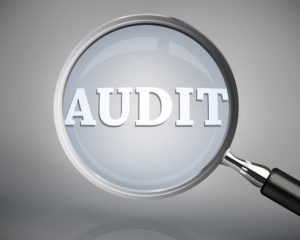
Regularly performing an internal audit of your business is critical for ensuring that business operations are working as intended.
There is a lot of work that goes into the running of your small business, as you are well aware. Keeping track of the financial aspects is its own full-time job, which is why so many small businesses outsource it to an accountant or an accounting agency (this is a good choice for more than just tax time). One of the tasks that this person or group could be assisting you with (and one that you should do on a somewhat regular basis) is the internal audit, especially if you are looking to grow your small business. What is an internal audit, and how will it benefit your small business? Those are great questions to dive into.
What is an Internal Audit?
An internal audit is a system of overview that seeks to make sure that the internal processes of a business are sound. The goal is to make sure that the policies, procedures, and processes that your business uses are efficient and don’t leave room for fraud or theft.
Who Does the internal Audit?
Depending on the size of the business, the actual audit process may be performed by various people. In most small businesses, the audit would be done by the owners, perhaps with the assistance of a professional. If the business is large enough, there may be an employee designated to perform the audit, but it should not be anyone who works for the accounting department specifically, and the individual should report directly to the owners or to the audit committee. Finally, in some cases, it may be best to outsource this to a firm that has employees who specialize in internal audits.
What Does the Audit Look at?
The first thing that an internal audit looks at is the segregation of duties. Namely, there should be different employees responsible for the custody of assets, the transfer of assets, and the recording of transactions involving assets. Next, the audit should look at the written policies and procedures and identify which functions require written policies. The audit should involve risk assessment to determine the likelihood of negative outcomes of not having written policies for certain functions. Next, the audit needs to review your compliance with any applicable laws or regulations. Finally, even if your industry doesn’t include regulations for data handling, make sure that you are also auditing the potential for data breaches and information security issues.
Trust the Professionals at the Harding Group
Unlike other accounting firms, The Harding Group, located in Annapolis, MD, will never charge you for consultations and strive for open communication with our clients.
Are you interested in business advising, tax preparation, bookkeeping and accounting, payroll services, training + support for QuickBooks, or retirement planning? We have the necessary expertise and years of proven results to help.
We gladly serve clients in Annapolis, Anne Arundel County, Baltimore, Severna Park, and Columbia. If you are ready to take the stress out of tax time, contact us online or give us a call at (410) 573-9991 for a free consultation. Follow us on Facebook, Twitter, YouTube, and LinkedIn for more tax tips.


 Back
Back